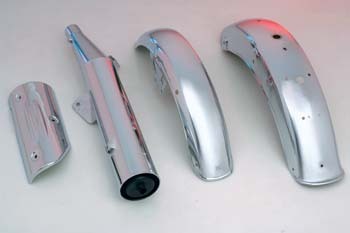Etymological Concept: 20th century witnesses the conceptualization of Zinc Plating process which is most prevalent nowadays too. Zinc Plating started in the early 1930’s to prevent the metals against the corrosion. This kind of plating serves the purpose of protecting any metal against the most challenging and dangerous corrosion. It is somewhat identical to the electro galvanizing process since both are based on the same principle of electro-deposition. Even the electroplating is done to increase the thickness of any metal and so that the metal is made corrosion resistant.
Understanding the concept of Zinc Plating:
- It is generally applied as an expandable electrode in cyanide solution which is alkaline or acid chloride salt solution.
- In this process, an electric current is run through a zinc anode solution which is mixed with steel conductor.
- The solutions which are used in this are alkaline or cyanide free in nature to safeguard the metals against dangerous corrosion, temperature, and any kind of wear or tear.
- After the cleaning and rinsing process, the metals are loaded into a drum or barrel and then immersed in plating solutions to brighten up the metal or to add luster so that the life of coating is extended.
Useful For the Electroplater:
Zinc alloys due to their alkaline properties are used for high performance and to passivize the coating conversion process. In this, the metal zinc acts as an anode which becomes a sacrificial metal for protection of iron or steel.
In the galvanizing process:
- Zinc electroplating helps in reduction of thickness deposits.
- Broad based conversion in the coating process is done.
- Many color options are used so that the metal becomes more appealing.
Zinc is a reliable metal since very long and this is the only reason that this metal possesses electro chemical properties. It is used well in the galvanization process and the alkaline batteries. Thus, an electroplater can go for the higher zinc contents or low density zinc contents according to the level of corrosion and is used on a large scale to get better results.

